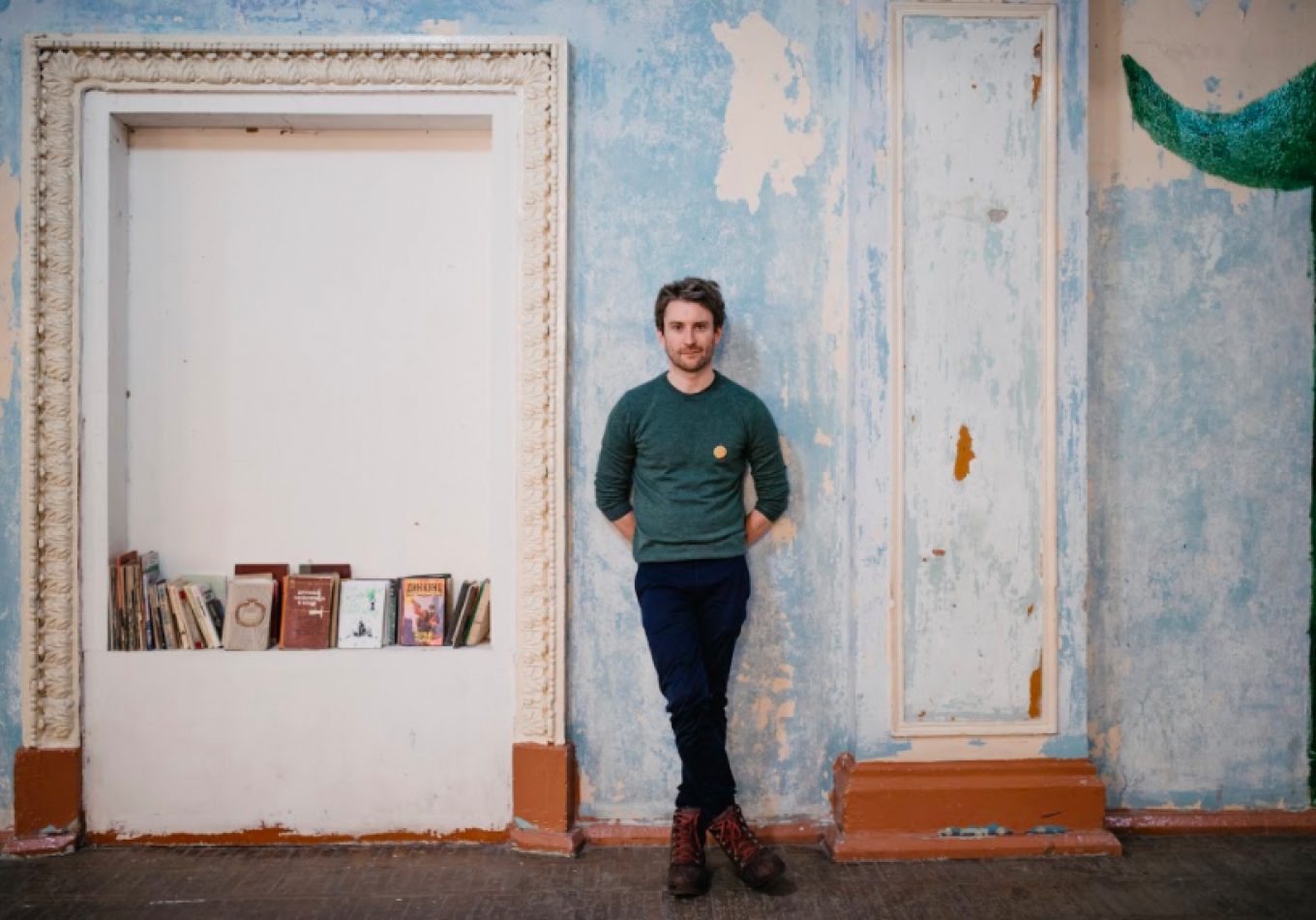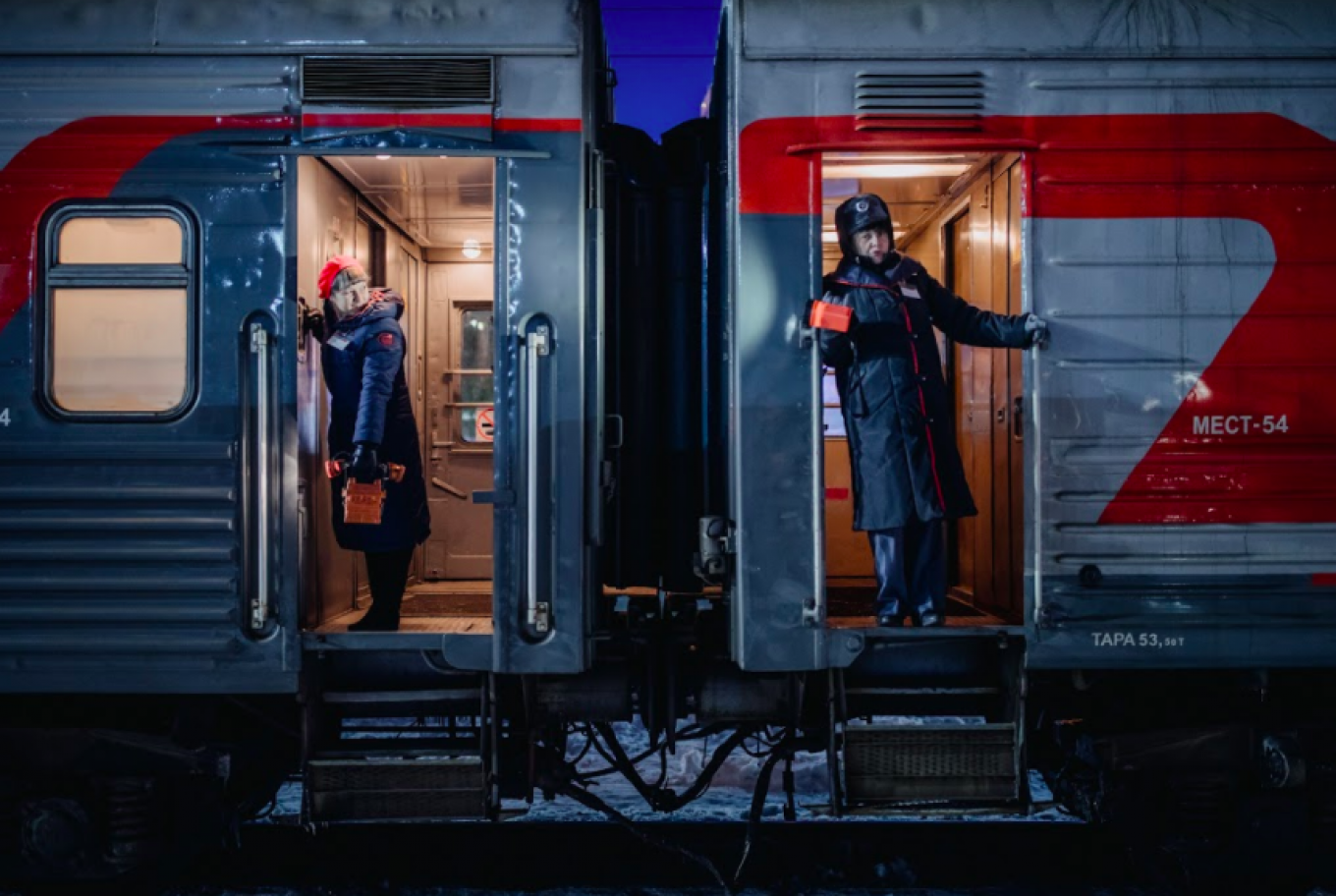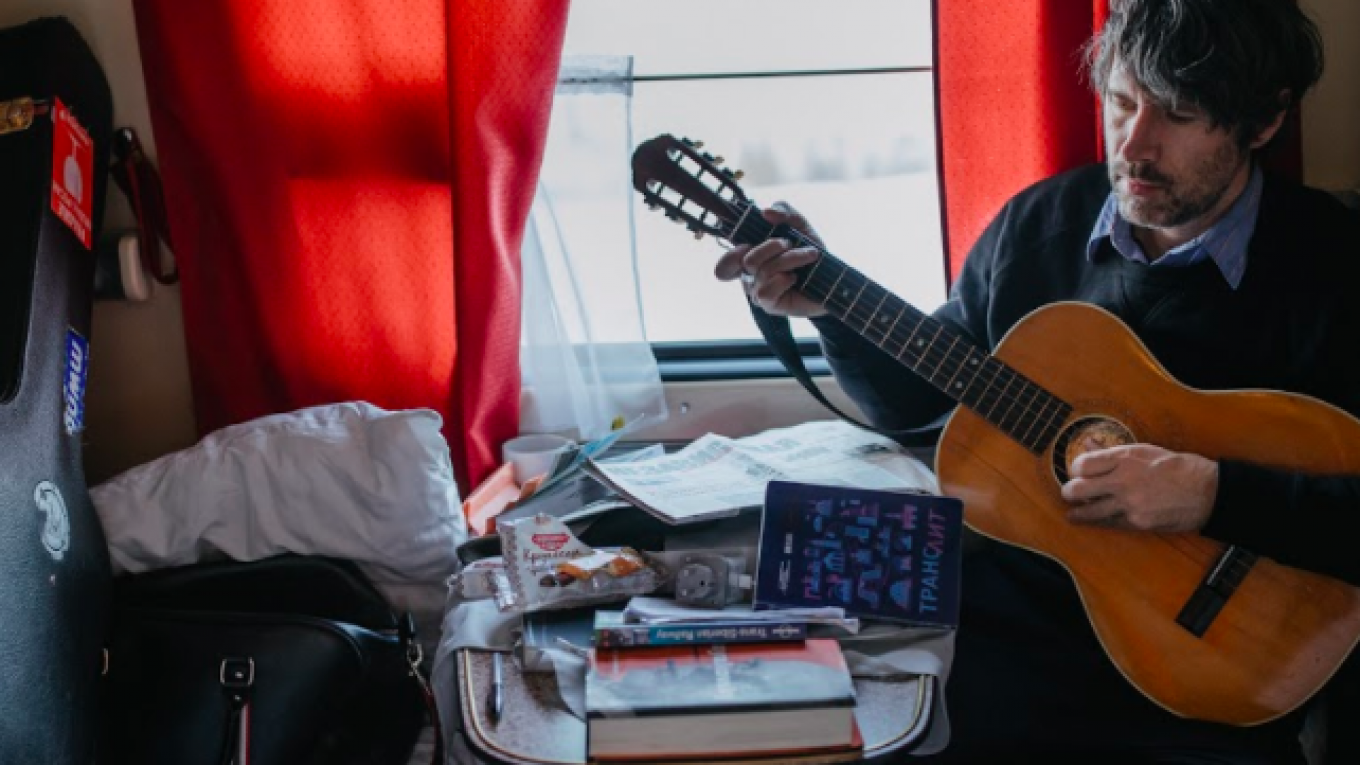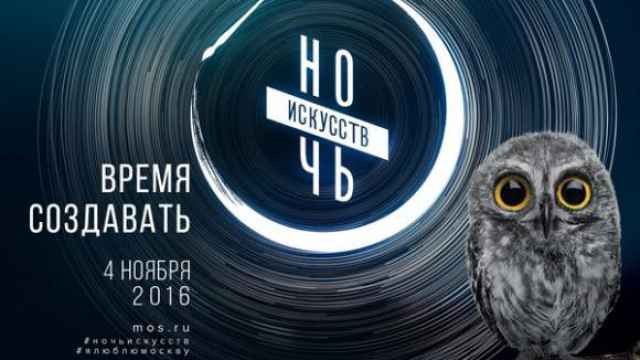A journey on the Trans-Siberian railway, with its boundless views of forest, land and sky, is as good a space as any to find creative inspiration. And it’s just that which a group of Russian and British writers, musicians and poets were after when they set off on a two-week journey to the depths of Siberia at the end of October.
“TransLit,” a project organized by the British Council in Russia, celebrates the 2016 U.K.-Russia Year of Language and Literature and coincides with the centenary of the longest railway line in the world, which stretches from Moscow to Vladivostok, a distance of some 9,258 kilometers.
The motley crew who took on the journey included both Russians and Brits: among them Shakespeare scholar and writer Andrew Dickson, award-winning novelists Alisa Ganieva and Joe Dunhorne, literary critic Konstantin Milchin and Gruff Rhys, frontman of iconic Welsh psychedelic rock group Super Furry Animals.
“It sounded like such a crazy idea. And when you get asked to do crazy things you should always say yes,” said Andrew Dickson in an interview with The Moscow Times. Having recently published a book about global interpretations of Shakespeare, Dickson was keen to see the influence of the bard and his legacy in Russia.
“Russian interpretations of Shakespeare are so important. Kozinstev’s films — ‘Hamlet’ and ‘King Lear’ — show such a deep engagement with Shakespeare. And it runs all the way through Russian literature,” said Dickson. “From Chekhov and 19th-century adaptations of the plays to the fad for ‘Hamletism’ and Tolstoy’s vexed relationship with Shakespeare. Then in the communist period it’s interesting how Shakespeare was used as a way of escapism — alluding to political realities that you couldn’t talk about directly.”

The group stopped at four cities — Kazan, Yekaterinburg, Novosibirsk and Krasnoyarsk — spending time experiencing local culture and holding ‘creative evenings’ in each city, where they told stories through poetry, song and discussion.
“The thing that I’ve most been heartened by on this journey is first of all how many young people engage with culture here. Every event we’ve done has been packed with young people asking disconcertingly knowledgeable questions,” said Dickson. “The public here are incredibly well-informed. A chemist from Krasnoyarsk came up to me and asked me about the theory that Hamlet’s name is based on the biblical character of Ham.”
The journey was as much about providing a space for dialogue between artists and writers of different backgrounds as it was about traveling physical distances. In a confined space without 3G or WiFi, discussion was the natural way to pass the time. And it yielded some interesting conversations.
“I love the spaces between languages where happy accidents can happen,” said Gruff Rhys, frontman of Super Furry Animals. “I write in Welsh and in English, and on this trip I was interested in how when phrases are translated from one language to another they can sound completely absurd — like the Russian salad, ‘herring under a fur coat,’ which paints a very surreal image when translated.”

The trip rounded off last week at Dewar’s Powerhouse, where the group presented some of their creative responses. These included a multimedia work with song, poetry, video and sounds from the railway curated by Francesca Panetta, virtual reality editor at the Guardian, songs from Gruff Rhys and travelogues.
Alisa Ganieva, the Dagestani author of “Salaam, Dalgat!” and “The Mountain and the Well,” was equally inspired by the polyphony of voices and influences the trip through Russia yielded.
“The further east in Russia you go, the greater the change in your sense of time, the world, yourself. For me it was so interesting how many ideologies coexist in one country. I saw this not in the whole, but in the details.”
The railway, with its constantly changing landscape and scenery, echoed the diversity of the group. For Ganieva and others on the trip, the journey was proof that whatever the political situation between countries and nations, cultural communication can cross many apparent barriers.
“The arts are always about going beyond borders. Stepping out
of your comfort zone and outside your norms. And intercultural
communication such as a two week trip with a small group of
foreigners is a rich stimulus and incentive for stepping out of
your own reality,” said Ganieva.
Find out more about the project at britishcouncil.ru/en/events/artresidence-translit
A Message from The Moscow Times:
Dear readers,
We are facing unprecedented challenges. Russia's Prosecutor General's Office has designated The Moscow Times as an "undesirable" organization, criminalizing our work and putting our staff at risk of prosecution. This follows our earlier unjust labeling as a "foreign agent."
These actions are direct attempts to silence independent journalism in Russia. The authorities claim our work "discredits the decisions of the Russian leadership." We see things differently: we strive to provide accurate, unbiased reporting on Russia.
We, the journalists of The Moscow Times, refuse to be silenced. But to continue our work, we need your help.
Your support, no matter how small, makes a world of difference. If you can, please support us monthly starting from just $2. It's quick to set up, and every contribution makes a significant impact.
By supporting The Moscow Times, you're defending open, independent journalism in the face of repression. Thank you for standing with us.
Remind me later.






